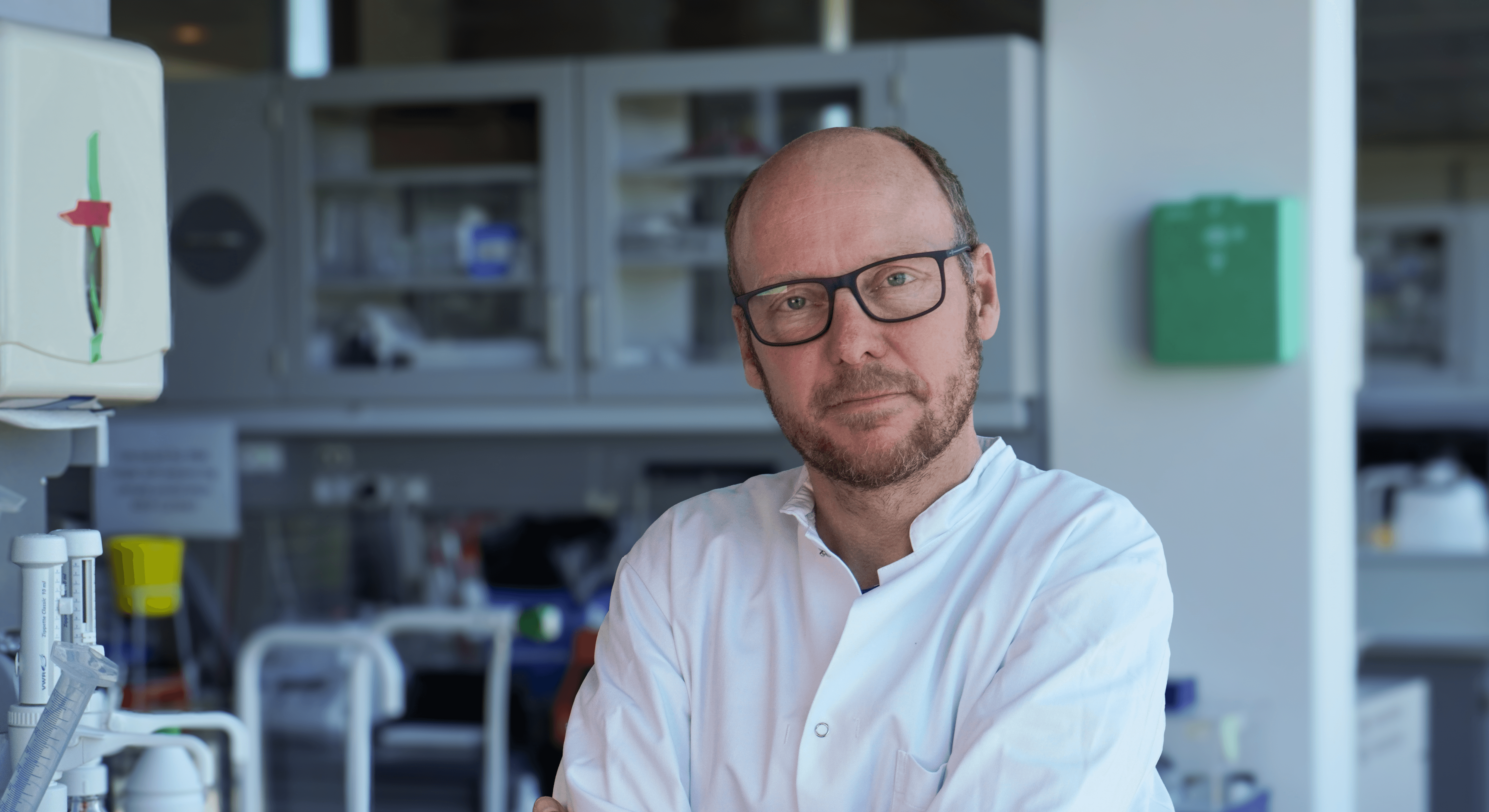Lars Engelholm awarded prestigious grant to advance innovative pan-cancer therapy

Patients suffering from pancreatic cancer, as well as other cancer types, may face better treatment in the future. Researchers from BRIC and Rigshospitalet are awarded a 5 million DKK Frontier Grant by the Lundbeck Foundation to prepare promising cancer therapy for clinical trial.
A need for better treatment for pancreatic cancer is what drives Lars Engelholm, associate professor and group leader at BRIC. That is why he, together with his research team at the Finsen Laboratory, have developed an antibody drug conjugates (ADCs) therapy targeting pancreatic cancer.
“Our studies show that ADCs are very efficient in treating pancreatic cancer in mice. We are now at the stage of preparing for clinical trial,” says Lars Engholm.
Promising potential as pan-cancer therapy
The ADC developed by Engelholm and his team is targeting the receptor uPAR, which is overexpressed by rapidly growing cancers, including pancreatic cancer. But their studies have shown a promising potential in other cancer types as well.
“Our results are promising, and our hope is to create a pan-cancer therapy which is efficient in a wide range of cancer types,” he says.
“We are at the stage of testing the efficiency in targeting other receptors and thus other forms of cancer,” Lars Engelholm explains.
Like target-seeking missile
The ADC therapies have attracted a great deal of interest in recent years due to its’ two main components: An antibody and a potent cell killer (cytotoxin).
The antibody is like a target-seeking missile and is linked (conjugated) to its cytotoxic ‘bomb’ via a cleavable linker. This linker ensures that the cytotoxin is only released once inside the target cells. ADCs target specific proteins – antigens – on the surface of the cancer cells, which the antibody is designed to recognize.
“We are readying the therapy for investors, so within the foreseeable future we should be able to bring it to the patients, which is what we’ve set our sights on,” says Lars Engelholm.
The Frontier Grant is awarded for an 18-month period.
